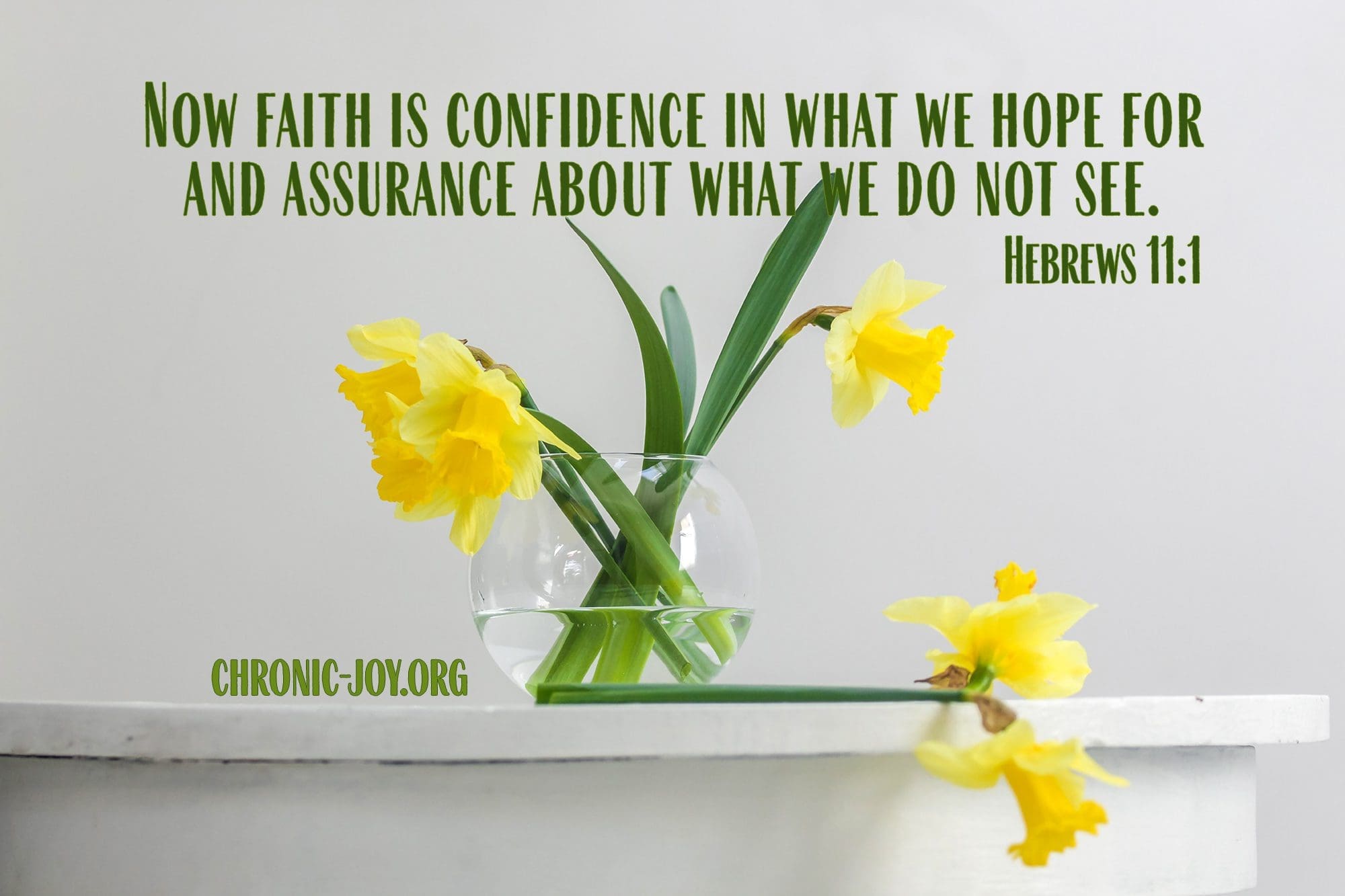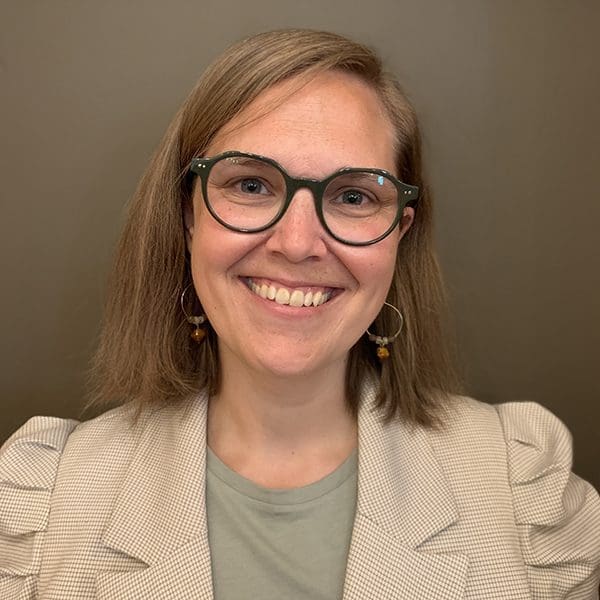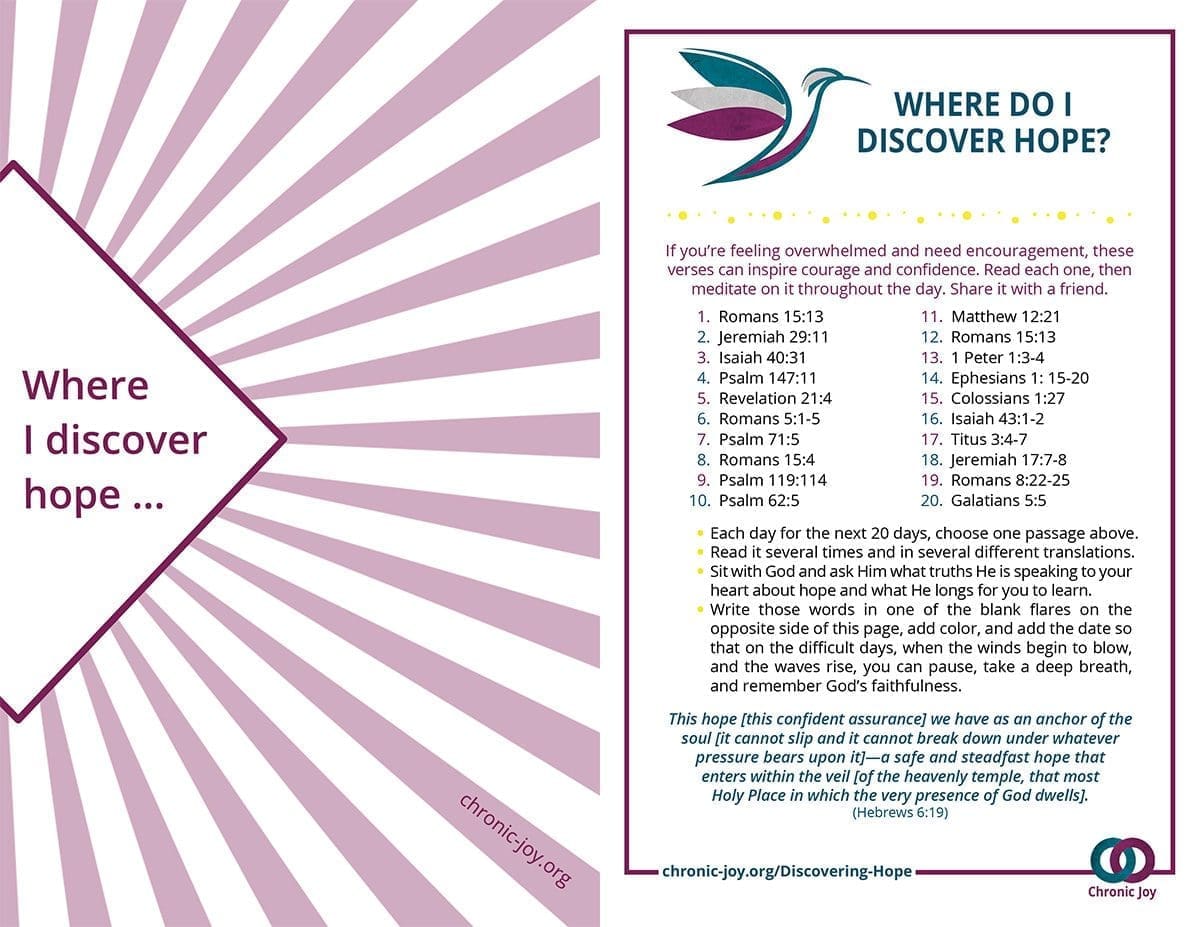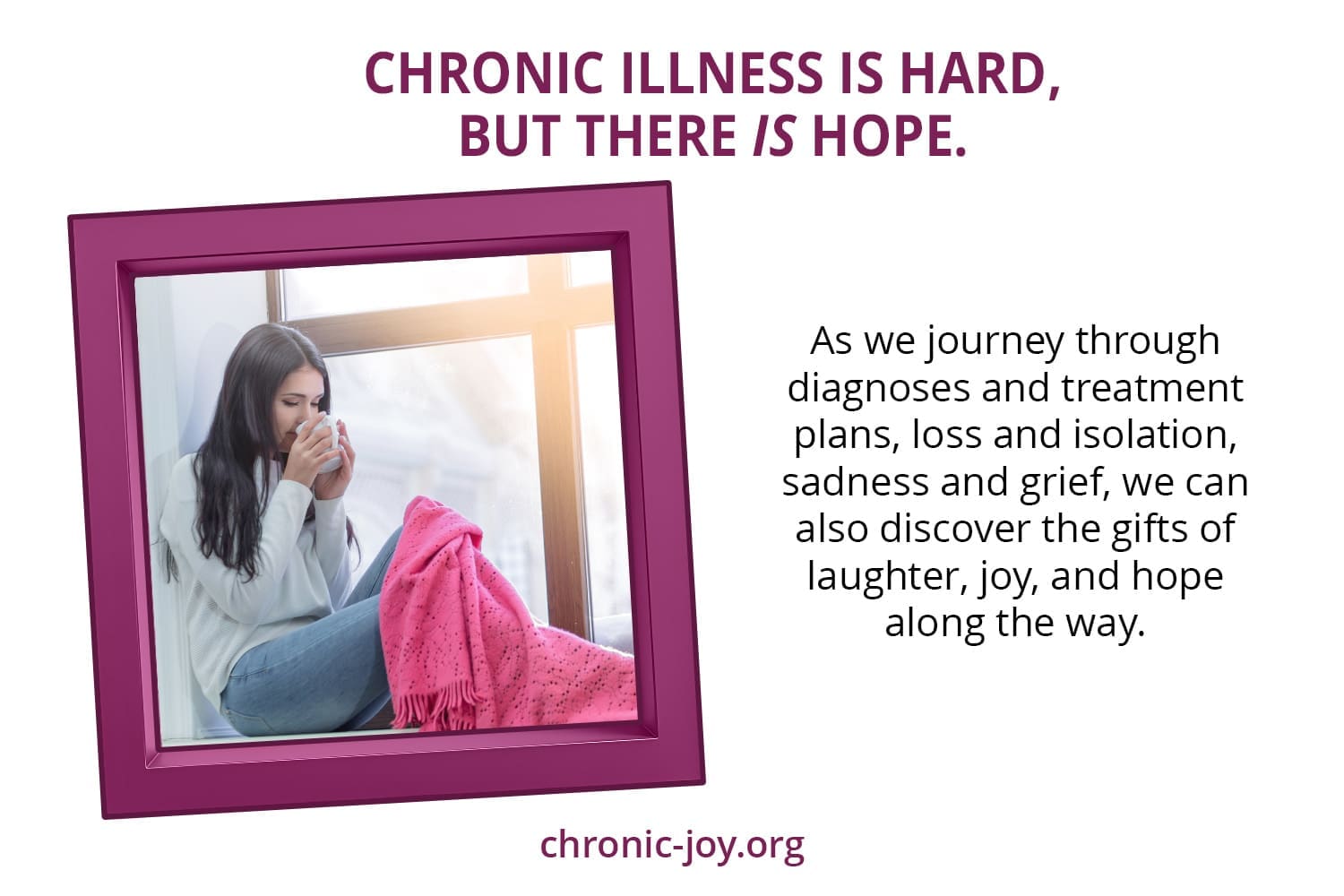
Now faith is confidence in what we hope for and assurance about what we do not see. (Hebrews 11:1)
PAINFUL DIAGNOSES AND MISPLACED HOPE
For the last decade, I’ve suffered from a spinal injury that developed into spinal stenosis and severe osteoarthritis. I was 27—too young. Overnight, my lifestyle disappeared, and (to add what felt like insult to injury) I gained back a good portion of the weight I had lost. Plus, I found myself dealing with a second chronic injury in my hip, a third chronic condition silently wreaking havoc within my body, and delays in treatment beyond my control. Perhaps the most disappointing aspect for my psyche would come every year or so when I would try to increase my activity; each attempt resulted in failure and disappointment.
It wasn’t until I was sitting in my mental therapist’s office that I realized how much my hope had gotten lost in the physical. Maybe more accurately, how much I had placed my hope in things of this world was laid unbearably bare. In the middle of the session, I blurted out:
“I feel like I’ve lost the best years of my life.”
It turns out I’d bought into the idols of our age: that those bodies able to soar and sprint and climb and lift are the best bodies—especially when they are thin and sexy. I had fallen into the trap of believing that youth is as good as it will get. Most fatalistic of all, I’d accepted that if you didn’t have your life sorted by the time you were 30 (and to be honestly more specific, if you hadn’t found someone willing to spend the rest of their life with you), it was already too late because “It’s all downhill from here.”
MY NEW HOPE QUESTION
I didn’t do so willingly. I even taught and preached against these false gods, but insidiously, they found their way into my life. Looking back, I think it’s because I didn’t have an alternative to replace them. That’s how mental models and false narratives change: you can’t just reject the bad; you have to live the true.
My therapist responded to my statement of loss, failure, and resignation with an incredulous: “How do you know that?”
How did I know that the best years of my life laid in waste behind me?
“How do you know?” has become my new hope question, the narrative that replaces the traps laid for me by resignation that my life is over, that the best I can be has already faded. Instead, each day, I wake up and live in the mystery that I do not know.
The definition of the Greek word for hope in the Scriptures (such as in Hebrews 11:1) is to look forward to something, with the implication of confidence about something coming to pass. I understand that if I can’t know that past me was the best me that will ever be, I can seek to be a better me right now—but not on my own strength. I tried that and kept unwittingly falling to the temptations of the idols. No, now I understand that hope is best when the Triune God is at its center…even hope about my very self.
HOPE WITH PAIN: DISCOVERING GOD’S HAND
My lament of what has not been still gets a voice. Pain, in all of its forms, is very real—and the nature of chronic is that it sticks around past its welcome. The mystery of God is that I can still have the best version of me amid this suffering.
For me, that has meant sifting through what I do and why I do it, then trying to remove the wrong motivations: those expectations and hopes others have for me, my fears of rejection, my seeking to numb the suffering or make it more palatable (for myself and others), my succumbing to the demands of the world…
Then, replace those motivations with mysterious hope by living each day as part of discovering
- what God needs me to do,
- what God has planted within me to grow and gift to the world,
- how to lie down (because sitting hurts too much) in silence and solitude, unafraid and
- how to dare to be happy, dreaming that the best of what I will be is unfolding right now because I’m choosing to follow God’s narration and no one else’s—not even my own.
As mystery, what my life will look like is unknown, but each day, I fill in a piece with the steps of faith. I have hope. Instead of being resigned about what I cannot do, I live within what I am doing—a doing that includes experimenting with the boundaries of what I thought possible. Now, I’m motivated by discovering God’s hand—and a sense that what’s possible might be much larger than I ever imagined because my hope is about what God can do, and that’s limitless.
First published on Reformed Journal: Hoping with Pain. Published with permission.


Chelsey Harmon
Chelsey is a minister in the Christian Reformed Church, currently serving her calling through full-time study at Regent College in Vancouver, British Columbia. As part of a ThM in Spiritual Theology, she spends her time reading, researching and writing about 17th century Puritan Mysticism (experiencing the presence of God). Chelsey also writes the weekly Lectionary Gospel Sermon Commentary for the Center for Excellence in Preaching.

Where do I discover hope?
If you feel overwhelmed and need encouragement, these verses will give you courage and confidence. Why not meditate on them throughout your day and share them with your friends?
Chronic Illness
As we journey through diagnoses and treatment plans, loss and isolation, sadness and grief, we can also discover the gifts of laughter, joy, and hope along the way.


Recent Comments